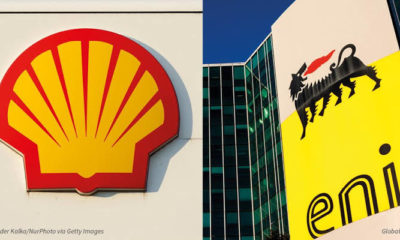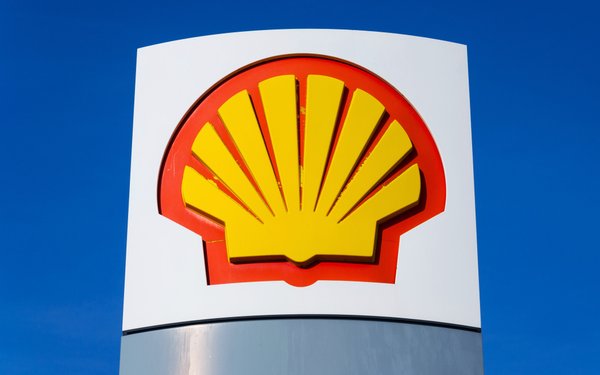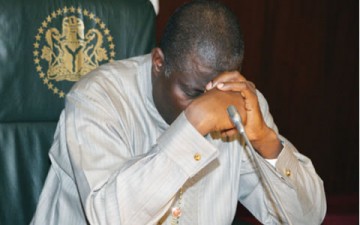Oil
Large part of Eni’s Nigerian oil deal cash went on bribes-Italian prosecutors

Italian prosecutors investigating state-backed firm Eni SpA over the purchase of a Nigerian oil field three years ago, allege that at least half of the $1.1 billion paid was used to bribe local politicians, intermediaries and others, according to official documents and a person close to the investigation.
The Milan prosecutors have placed the Italian oil company, its former chief executive Paolo Scaroni and current CEO Claudio Descalzi under investigation for alleged international corruption surrounding the deal for the OPL 245 offshore oil field concession.
Eni and both managers, neither of whom have been charged, have denied any wrongdoing.
Calling on their UK counterpart to assist in freezing suspect assets, Italian prosecutors said in a letter to the UK’s Crown Prosecution Service (CPS) seen by Reuters that at least $533 million was paid to Nigerian officials and intermediaries who helped secure the sale.
The case has been a setback for the government of Prime Minister Matteo Renzi, because Italy’s 39-year-old leader hand-picked company veteran Descalzi to run Eni as part of a recent management overhaul at the country’s state-controlled companies. Renzi has publicly supported Descalzi and said no conclusions should be drawn before the investigation is completed.
Eni and Royal Dutch Shell, which is not under investigation, bought the rights to the OPL 245 offshore oil licence block from the Nigerian government in 2011.
Production from the deepwater oil field is expected to begin in 2016 with the field estimated to hold up to 9.23 billion barrels of crude, equivalent to nearly a quarter of the country’s total proven reserves, according to industry figures.
An aide to Renzi told Reuters the case involving Eni, which is Italy’s biggest company by market capitalisation and the state’s biggest asset, was “not a big cause for concern at the moment.”
As part of their investigation, the Italian prosecutors in May asked the UK’s CPS to freeze $85 million in assets related to a Nigerian company, Malabu Oil & Gas, that prosecutors say was involved in the sale, according to a copy of the official request sent by the Milan investigators and seen by Reuters.
In the letter, the Italian prosecutors alleged that Scaroni and Descalzi oversaw the payments to parties who helped secure the sale. In a second letter they alleged that some of the ultimate recipients of alleged bribes used the money to buy aircraft and armoured cars.
“We are investigating many money transfers to many people in various countries who received sums that vary from millions of dollars to thousands of dollars,” the prosecutors said in the follow-up letter, seen by Reuters.
In response to the requests London’s Southwark Crown Court last month granted an order to seize the $85 million in assets related to Malabu, according to a judicial source.
London’s Metropolitan Police has also been investigating aspects of the Nigerian deal since last year. A police spokesman said the inquiry into allegations of money laundering is continuing.
Descalzi and Scaroni, in statements and through their lawyers, denied that they were involved in any illegal behaviour. Descalzi also told Eni employees in an email seen by Reuters that he had not engaged in any wrongdoing.
After a board meeting last week Eni also reiterated that the company had not engaged in any wrongdoing and that it had “full confidence that Descalzi had acted properly.”
The OPL 245 block licence has long been the subject of dispute. It was first awarded a decade ago by military dictator Sani Abacha to Malabu Oil & Gas for a publicly-stated $20 million.
After the death of Abacha, a new Nigerian government annulled the deal. Malabu’s licence was reinstated in 2006.
Reuters was not able to locate Malabu for comment, and it is unclear whether the company still exists.
Nigeria’s Economic and Financial Crimes Commission, a government agency, did not reply to questions sent by Reuters asking about the investigation by Italian prosecutors.
Shell, which is not under investigation in any case, released a statement saying: “Shell companies have acted at all times in accordance with both Nigerian law and the terms of the OPL 245 resolution agreement with [Nigeria].”
BUSINESSDAY-
Oil
NNPC Targets 60% Methane Emission Reduction By 2031
The Nigerian National Petroleum Company Limited (NNPC) has unveiled a bold strategy to reduce methane emissions in the oil and gas sector by 60% by 2031, with an ultimate goal of achieving net-zero emissions by 2060.
This announcement reinforces Nigeria’s leadership role under the Global Methane Pledge initiative and its commitment to tackling climate change.
The Group Chief Executive Officer of NNPC, Mele Kyari, disclosed these plans during a meeting on Thursday with Robert Leahman, the U.S. State Department’s Global Methane Program Manager, and a delegation from Deloitte.
READ MORE: Atiku Gloats Over AUN’s Achievements Ahead Of 20th Anniversary
The discussions, held at the NNPC Towers in Abuja, focused on collaborative efforts to reduce methane emissions through innovative and sustainable practices.
“Reducing methane emissions is not just an environmental necessity but also a strategic imperative for Nigeria’s energy transition. We are leveraging partnerships to adopt global best practices and innovative solutions,” Kyari stated.
Key among these efforts is a pilot project in the Niger Delta, aimed at establishing emissions baselines, mitigating methane leaks, and promoting sustainable operations across Nigeria’s energy sector.
The project, a partnership between NNPC, Deloitte, and the U.S. Bureau of Energy Resources, will utilize data-driven methodologies to pinpoint and address methane hotspots.
Robert Leahman commended Nigeria’s proactive stance, describing it as a benchmark for other nations on the continent.
“Nigeria’s leadership under the Global Methane Pledge sets a standard for the continent. These initiatives will not only help reduce emissions but also drive sustainable development in the energy sector,” he said.
Kyari highlighted the broader benefits of addressing methane emissions, noting its significance for both environmental protection and economic efficiency.
“This collaboration is a game-changer. By addressing methane leaks, we’re reducing waste, saving costs, and protecting the environment. It’s a win-win for our economy and the planet,” he added.
Oil
FG Introduces New Incentives To Revitalize Nigeria’s Oil & Gas Industry
In a strategic move to revitalize Nigeria’s oil and gas sector, the Federal Government has unveiled two key fiscal incentives aimed at attracting investment and enhancing energy security.
The announcement was made by Mr. Wale Edun, the Minister of Finance and Coordinating Minister of the Economy on Wednesday.
The first initiative, the Value Added Tax (VAT) Modification Order 2024, introduces critical exemptions for essential energy products and infrastructure, including Diesel, Feed Gas, Liquefied Petroleum Gas (LPG), Compressed Natural Gas (CNG), Electric Vehicles, Liquefied Natural Gas (LNG) infrastructure, and Clean Cooking Equipment.
Read Also: Atiku Calls For Rotational Presidency Across Nigeria’s Geopolitical Zones
These exemptions are designed to reduce living costs for Nigerians, promote energy security, and accelerate the transition to cleaner energy alternatives.
The second initiative, the Notice of Tax Incentives for Deep Offshore Oil & Gas Production, offers new tax relief options for deep offshore exploration projects.
This measure aims to position Nigeria’s deep offshore basin as a premier destination for international oil and gas investments, boosting the country’s appeal to foreign investors.
These reforms are part of a broader set of policy initiatives, known as Policy Directives 40-42, endorsed by President Bola Ahmed Tinubu.
The directives reflect the administration’s commitment to fostering sustainable development in the energy sector and enhancing Nigeria’s competitive edge in the global oil and gas market.
Business
Tinubu set to approve ExxonMobil-Seplat oil deal, expands CNG bus initiative

By Yemie Adeoye
NIGERIA’s President Bola Tinubu has announced that the protracted ExxonMobil-Seplat upstream oil divestment will be formally approved by the Minister of petroleum within a matter of days, just as he announced his government’s intention to expand the Compress natural Gas, CNG buses initiative.
The President who stated this during his Independence day nationwide broadcast stated that the move is in line with his administration’s commitment to free enterprise, free entry and free exit in investments which is the hallmark of his administration investment policy.
“Fellow compatriots, our administration is committed to free enterprise, free entry, and free exit in investments while maintaining the sanctity and efficacy of our regulatory processes. This principle guides the divestment transactions in our upstream petroleum sector, where we are committed to changing the fortune positively. As such, the ExxonMobil Seplat divestment will receive ministerial approval in a matter of days, having been concluded by the regulator, NUPRC, in line with the Petroleum Industry Act, PIA. This was done in the same manner as other qualified divestments approved in the sector.”
The President also seized the opportunity to plead with Nigerians to be patient with his administration’s reform policies. “As your President, I assure you that we are committed to finding sustainable solutions to alleviate the suffering of our citizens. Once again, I plead for your patience as the reforms we are implementing show positive signs, and we are beginning to see light at the end of the tunnel”.
“Our energy transition programme is on course. We are expanding the adoption of the Presidential Initiative on Compressed Natural Gas for mass transit with private sector players. The Federal Government is ready to assist the thirty-six States and FCT in acquiring CNG buses for cheaper public transportation.
Fellow Nigerians, while we are working to stabilise the economy and secure the country, we also seek to foster national unity and build social harmony and cohesion. Our economy can only thrive when there is peace”. he enthused.



















